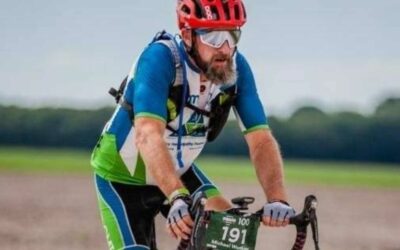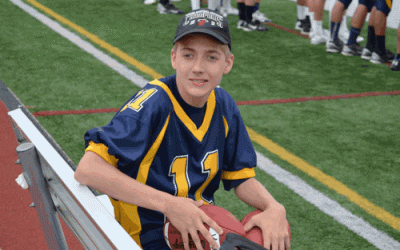The clinical Global Registry for Inherited Neuropathy (GRIN) and the Rare Disease Clinical Research Network (RDCRN) contact registry are very different types of databases.
As a contact registry, the RDCRN collects limited data on patients with CMT. For example, the RDCRN allows registrants to specify one of five types of CMT; if a registrant does not have one of these types, he/she is categorized as “other known” and “other unknown.” Additional clinical information is not collected in a contact registry such as the RDCRN.
The GRIN, however, is a clinical registry. It collects detailed clinical information on registrants that can be entered remotely, allowing the inclusion of clinical information on patients who have not been seen in a CMT Center. This includes a registrant’s specific type of CMT, genetic information, and the range and severity of symptoms experienced. Because this information can be uploaded electronically, the GRIN eliminates the need for costly travel for in-person clinical assessments at one of a few centers. Imagine being able to run a query and get a listing of registrants with CMT1A who also experience tremors? Or identify those with CMT2A who also have breathing difficulties? This is the kind of detailed clinical information that can inform researchers and provide patient information that is necessary for clinical trials.
De-identified information from the clinical registry GRIN will be shared with any non-profit organization, researcher or company working to cure CMT and related inherited neuropathies
It is critical that as many groups as possible have access to the information in GRIN to drive research and to access potential participants for clinical trials. The organizations sponsoring GRIN, Hereditary Neuropathy Foundation and Hannah’s Hope Fund, believe that only by uniting our community can we maximize our chance to find treatments and a cure for inherited neuropathies. Thus, information from GRIN will not be limited to those researchers funded by certain organizations. Rather, the critical clinical information contained within GRIN will be available to any organization working on CMT and related research for all forms of inherited neuropathy.
Will GRIN help support the work of Rare Disease Clinical Research Network (RDCRN)?
With the details of the type of CMT and symptoms collected through the GRIN, we can help support the work of RDCRN by identifying registrants to also join the contact registry and participate in one of the CMT Centers research programs. If a patient is not near a CMT Center and is not sure of their type of CMT, we can provide guidance on how to go about trying to receive a genetic diagnosis
By highlighting all the CMT’s as well as related hereditary inherited neuropathies, additional data will be available to researchers interested in those forms and will engage others to study those types. Many of these diseases are related therefore the more research being conducted, the better chance we have at treating all forms of CMT and inherited neuropathies.
The very process of gathering this kind of detailed, clinical information can also help advance our progress toward CMT treatments by providing new clues into the various inherited neuropathies.
By gathering clinical and genetic information into one database, scientists can continue to learn more about the specific causes of types of CMT and potentially discover opportunities to mitigate symptoms and progression. For example, it is well documented that even within families, severity can differ greatly due to genetic modifiers (even siblings have different DNA – compensatory genes that mitigate disease). Why is one patient with PMP22 duplication using a wheelchair when another walks without any assistance? The answer may lie in the detailed genetic sequencing, and GRIN will provide this invaluable data to the research community.
The availability of a detailed, clinical database of patients is critical to attracting pharma, industry and researchers to our mission.
As we all know, developing a treatment for any of the types of CMT, and bringing this treatment from the laboratory to market, requires significant funding. It is unlikely that one group or organization can accomplish this alone or exclusively. Rather, we believe that our mission requires a team effort, and thus the GRIN registry was established as a rich and valuable resource to be shared with all those working to cure CMT and related inherited neuropathies.
The cost of the chemistry work required to translate a candidate compound through to human application also cannot be accomplished without investor funding, which is the fastest way to bring forth new therapies. No funding means no therapies, and no data to excite investors means no funding!. Pharma and investors will only commit to rare diseases if they know they have an audience for their drug and participants for trials. Each individual form of inherited neuropathy is rare and many are ultra-rare. GRIN offers the kind of vast and rich clinical data that researchers will need both in the initial research phases as well as clinical trials.
Sharing this critical, detailed data will not compromise registrants’ privacy.
GRIN is strictly compliant with all Federal Privacy Guidelines for the protection of Personal Healthy Information (PHI). Any information requested is sent de-identified. GRIN is Institutional Review Board (IRB) Approved by Chesapeake, therefore certifying that clinical information can be used for clinical research. Visit www.neuropathyreg.org to read the GRIN Privacy Policy, Terms and Conditions and the Consent Form.





Have CMT1A. Confirmed by EMG, NCV and genetic testing. Diagnosed and followed by neurology department at Duke University, Durham, NC. Happy to participate in any clinical trial to help rid the world of this scourge.
Thanks for your good work.